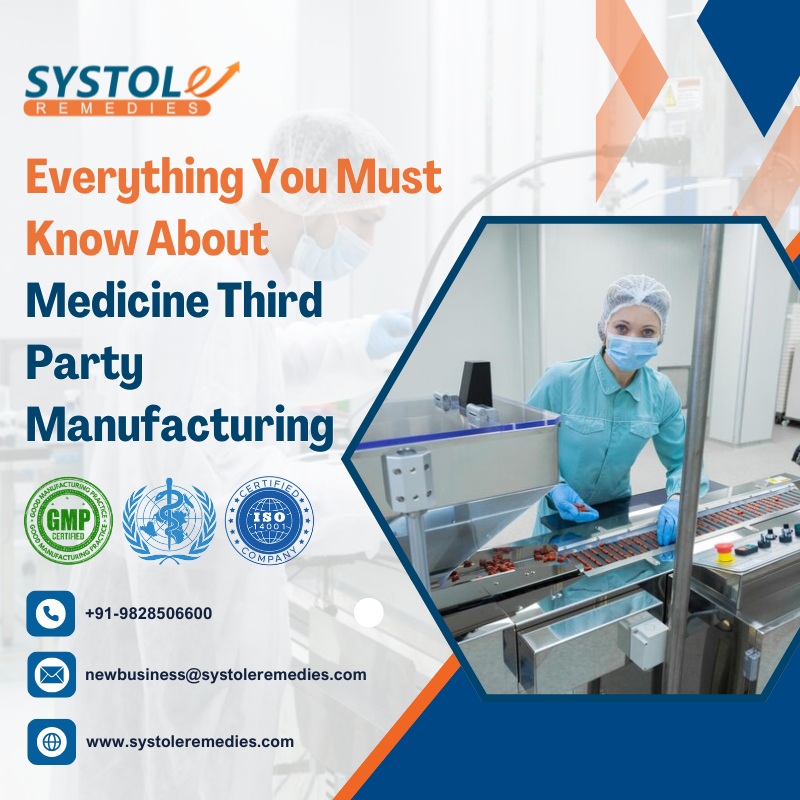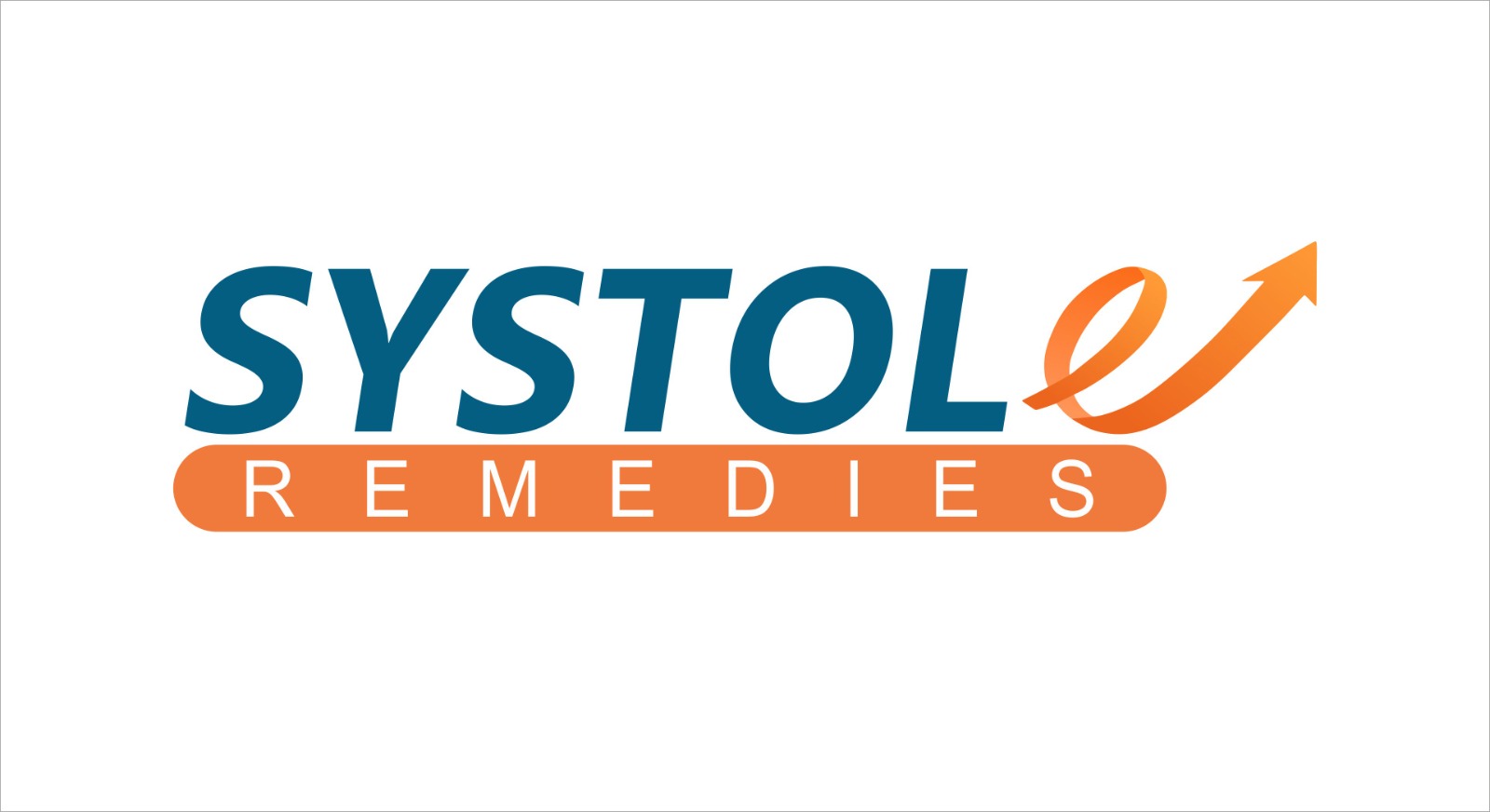-
Email Id
newbusiness@systoleremedies.com
-
Village Ogli Kala Amb
Dist Sirmaur Himachal-173030
-
Need Help?
Everything You Must Know About Medicine Third Party Manufacturing
 13 February 2025 | By Admin
13 February 2025 | By Admin
Third Party Manufacturing of Medicine is an emerging pattern in the pharma sector. This model enables companies to concentrate on marketing, brand development, and distribution while keeping the manufacturing operations to manufacturing professionals. The setup suits both the parties in interest, and it has gained popularity as an ideal model with numerous players in the pharmacy space. In this article, we will look at everything you must know regarding Third Party Pharma Manufacturing, how it functions, its advantages, and why most pharma businesses are going the route of third-party manufacturers for their own production.
What is Third Party Pharma Manufacturing?
Third Party Pharma Manufacturing refers to the process where a pharma company outsources the production of its drugs to an experienced third party pharma company. These third-party manufacturers are responsible for the entire production process. It is a form of pharma contract manufacturing that is gaining popularity due to its efficiency and cost-effectiveness.
The relationship is built on a contract, often called third party contract manufacturing, which outlines all conditions and responsibilities between the two sides. By outsourcing manufacturing for third -party manufacturers, companies can save capital costs, avoid installing large -scale production facilities, and well -established contracts can benefit from expertise of manufacturing companies.
Why Do Pharma Companies Choose Third Party Pharma Manufacturing?
There are a number of reasons why pharma businesses prefer third party manufacturing:
1. Cost Saving
Manufacturing facilities are prohibitively expensive, and more so if assembled from scratch! When pharma companies cooperate with a top Third Party Manufacturing Company, they are spared from these massive investments on infrastructure, machinery, and skilled personnel. This also allows them to skip most of the costs related to regulatory approval and compliance because the third-party manufacturer usually has everything in place.
2. Concentration on Core Competencies
Outsourcing manufacturing improves the abilities of pharma companies to concentrate on their core competencies-such as research, branding, and sales. The Third Party Manufacturer works on production while the brand owner concentrates on effectively marketing and strengthening its presence in the market.
3. Expertise and Experience
Leading Third Party Manufacturers have years of experience to offer. Their experience of manufacturing processes, quality assurance, and regulatory compliance guarantees the final product is of the best quality. This experience is important, as pharma businesses frequently handle sensitive products such as medicine and vaccines that require stringent quality control.
4. Scalability
Third Party Pharma Companies offer scalable manufacturing capabilities. From a small batch for a product launch to massive production for global distribution, third-party manufacturers are able to produce in different sizes. This scalability is what helps companies that seek to diversify their product line without the investment of additional facilities.
What is Pharma Contract Manufacturing?
Pharma Contract Manufacturing is refer to contract between manufacturer and pharma company. Under such an arrangement, a pharma company hires contract manufacturing companies to make high-quality medicines on their behalf. The contract then includes several aspects like product details, timelines, and quality control.
Contract manufacturing is used in the pharma industry because it enables businesses to catch up with demand without sinking money into sophisticated manufacturing businesses. Such companies are experts at producing large quantities of medications cheaply while maintaining quality and regulatory standards.
How Do Third Party Manufacturers Function?
Third Party Manufacturers within the pharma industry usually provide end-to-end services such as formulation, production, packaging, and labeling. Here is how the process functions:
1. Initial agreement
The first step in third party pharma manufacturing is a signing of a contract. The contract production specifies everything from time -limit to quality requirements. It is important for both sides to clearly outline the terms of the agreement to avoid misunderstandings.
2. Product development and formulation
Once the agreement is reached, the manufacturers of the third party work with the pharma company to develop the product. This involves preparing the drug, selecting the material and ensuring that the fractionalization regulatory meets the standards.
3. Production process
Third Party Manufacturers will then handle the production process. This involves the actual construction of the drug, which is done in compliance with quality and safety standards. The manufacturer also takes care of the packaging of products as per the specifications prescribed by the pharma company.
4. Quality control and testing
Quality control is an important part of third party pharma manufacturing. The contract manufacturing company conducts a thorough test and quality check to ensure that the products meet all the necessary health and safety rules. This is important to maintain the reputation of both the manufacturer of the third party and the owner of the brand.
5. Distribution and distribution
Once manufacturing and quality control procedures are completed, products are given to the pharmaceutical company. From there, the company can distribute products to hospitals, pharmacies and other retail shops.
Advantages of Third Party Pharma Manufacturing
- Lower Costs: Pharma companies save on operational expenses, such as labor, raw materials, and overheads related to keeping manufacturing facilities, by outsourcing manufacturing.
- Time to Market: Third Party Contract Manufacturing enables businesses to bring products to market quicker. With a trusted third party partner, businesses can optimize their manufacturing processes and reduce lead times.
- Greater Emphasis on Innovation: Outsourcing manufacturing allows pharma companies to focus their resources and time on research and development. This will enable companies to stay in that fast-growing market by launching new products without worrying about production problems.
- Compliance and Regulations: Leading Third Party Manufacturers are typically experienced in regulatory needs for various markets. They make sure that the manufacturing process is in accordance with international pharmaceutical regulations, which is crucial for product approval and distribution.
Conclusion
Third Party Pharma Manufacturing in today's highly competitive pharma industry offers an economical, flexible solution to companies willing to expand their product list. Manufacturing with reliable Third Party Manufacturers and Pharmaceutical contract Manufacturing services allow businesses to do what they do best: innovate and build a brand, giving the manufacturing to the experts. The choice of a Top Third Party Manufacturing Company can work wonders for ensuring career efficiency, quality, and timely delivery.
Must Read

